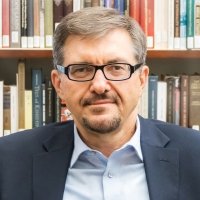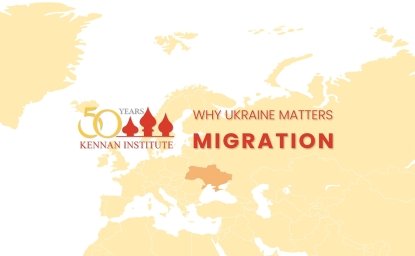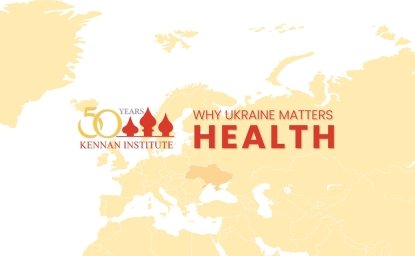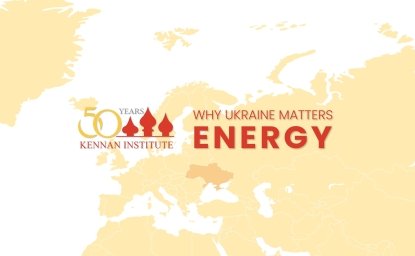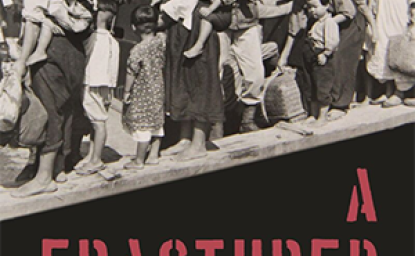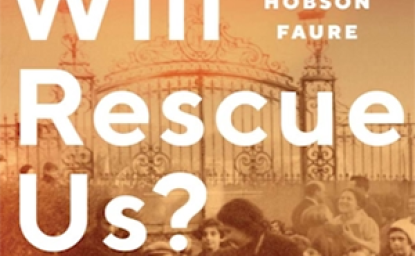The transcript has been lightly edited for clarity.
Serhii Plokhii: The current war is not something particularly new for the history of relations between Ukraine and Russia, and more specifically, Ukraine and the different incarnations of Russian imperial states. What is different is the scale.
And what follows are a number of tragedies that are part of the Soviet history, but are specifically part of Ukrainian history. And one of them is, of course, the famine, the Holodomor of 1932-1933, which in case of Ukraine, unlike the rest of the Soviet Union, had very strong underpinnings of Moscow and Stalin, in particular, conducting the policy of really destroying Ukrainians as a political nation, curtailing the development of the Ukrainian language outside of Ukraine - within the Soviet Union and inside.
Ukraine came into existence as an independent country in 1991. That was the fifth attempt in the course of the 20th century [by Ukraine] to acquire independence. So it came into existence in cultural terms as a sort of Ukrainian Russian condominium. The country spoke and continues to speak to me in languages, Ukrainian and Russian, and the situation was more or less stable.
What we see after 2022 is really a move that I would summarize in the words of one of my acquaintances who switched from [speaking] Russian to Ukrainian, saying that “I don't want to have anything in common with people who are doing that to us.”
That's a reaction to the indiscriminate bombardment and missile attacks on Ukraine and Ukrainian cities, in particular the predominantly Russian-speaking cities. So there is the shift in attitude toward culture, toward language, and a much broader embrace of them as symbols of not just national identity, but as the personal, political and cultural identity.
As a historian, I really can't think about any other war or military conflict in which history was so much used and abused. The first missile in this in this all-out war that started in 2022 was really fired early in 2021, and it was not the missile per say. It was a metaphorical missile. The essay authored or coauthored or edited by President Vladimir Putin himself, called on the historical unity of Russians and Ukrainians. And the very first paragraph of the essay stated its purpose to prove that really the Russians and Ukrainians are one and the same people, which means that Ukrainians don't exist and don't have a right to exist as a separate nation.
History, or this particular version of history, is being used to provide legitimization and justification for this horrible war and criminal acts of aggression.
What we see with this war is that gray zones are really, really disappearing in Europe. And [it’s] not the old Iron Curtain emerging, but certainly some elements of that Iron Curtain are coming back. And for Ukraine, it's the biggest issue now on which side of this divide Ukraine will be. And certainly Ukraine pays enormous sacrifice in terms of human lives, health - you name it.
But what is very often missed is that war in Ukraine, in a manner of speaking, went nuclear already on the first day of that all-out Russian aggression, when the Russian army took over Chernobyl nuclear power plant, and a few days later, Europe's largest nuclear power plant in Zaporizhzhia with six nuclear reactors.
This happened to be the first case in Europe in the history of warfare, where a military force in the middle of the war takes over a nuclear site. And that really put immediately on the agenda a number of issues that we, as a world community of nations, were not and are still not prepared to answer.
It's a call for the global society as a whole to deal with the Russian aggression, not just as a regular - any sort of aggression in the past, but it is the sort of aggression that presents new threats and new risks.
Basically, we can say now that Ukraine will stay, the Ukrainian nation will survive and Ukrainian state will survive, and in many ways will continue to serve as the gates of Europe. But what happened as the result of this war is that those gates are closed.
